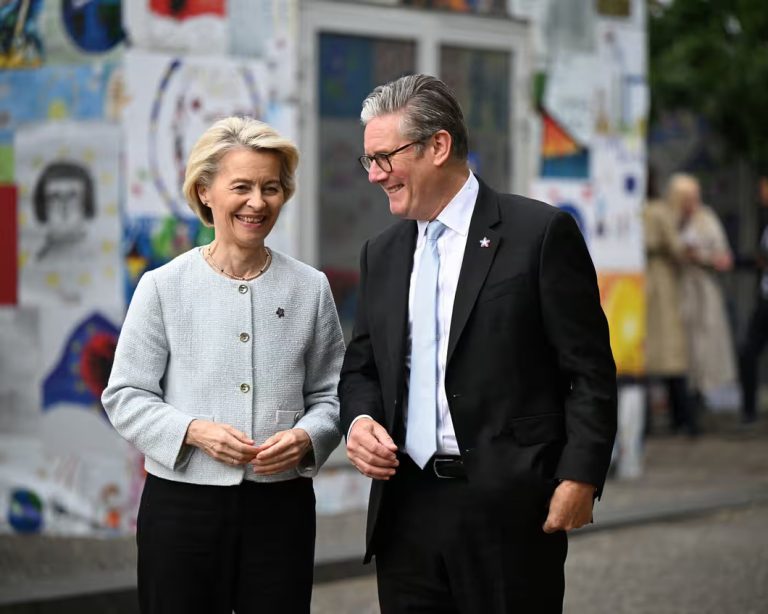UK and EU Strike Last-Minute Deal Ahead of Key Brexit Reset Summit
The UK and European Union have clinched a last-minute agreement paving the way for a major reset in their post-Brexit relationship, following a breakthrough in disputes over fishing rights and checks on agricultural goods.
As European Commission President Ursula von der Leyen arrived in London on Monday morning to meet with Prime Minister Keir Starmer, talks had stretched late into the night. Tensions rose as negotiators raced to secure terms, but a UK government official confirmed that a sticking point had been resolved when Brussels dropped its demand to tie fishing access to the duration of rules on food, animal, and plant product checks—known as sanitary and phytosanitary (SPS) goods.
Fishing access had been a core issue in the talks. The final deal is understood to grant EU vessels access to British waters for a decade—more than double the four-year term originally sought by the UK. In exchange, the EU is believed to have made additional concessions. EU officials signaled optimism, with one source stating: “The stage is now set for a constructive and successful reset in UK-EU relations.”
However, not all elements of the broader negotiations are expected to be wrapped up on Monday. The two sides remain divided on a potential youth mobility scheme, with the UK pushing for a cap on numbers—a condition the EU currently rejects.
Trade and Business Secretary Jonathan Reynolds, speaking early Monday, declined to confirm whether a final deal had been reached but stressed the stakes. “This is about improving lives, boosting jobs in the UK, and enhancing our national security,” he told Times Radio. “The current arrangements leave big gaps—not only in trade but in other key areas like security.”
While Downing Street has emphasized that Monday’s meeting is part of a wider process rather than a single decisive moment, the overnight talks mirrored the intense and often turbulent negotiations of the original Brexit process.
Beyond fishing and food trade, the agenda has included enhancing UK firms’ access to EU defence contracts, finalizing the youth mobility proposal, and allowing UK travelers faster entry through EU e-passport gates.
Fishing has remained a symbolic flashpoint in UK-EU relations, despite its modest economic footprint. Conservative and Reform UK politicians have warned against any agreement that would be seen as compromising the UK’s sovereignty over its waters. On Monday, Mike Cohen, CEO of the National Federation of Fishermen’s Organisations, said the industry’s response would depend on what was gained in return for extending EU access.
“If this deal includes a longer-term commitment, the critical question is: what have we secured in exchange?” he said on BBC Radio 4’s Today programme. “If there are real benefits for fishing communities, it might be a worthwhile agreement. But if we’ve conceded access without getting anything meaningful in return, then from our point of view, it’s a poor outcome.”

